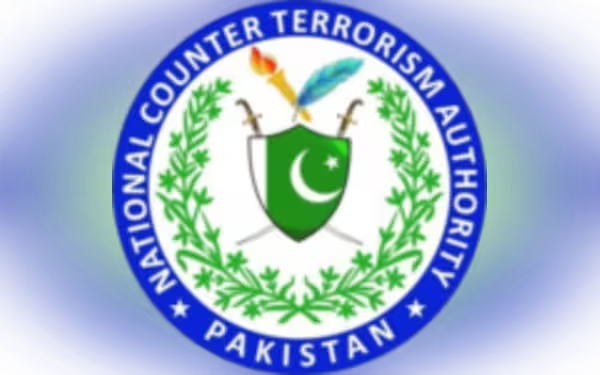Saturday, November 16, 2024 07:41 PM
NACTA Lacks Leadership as Terrorism Threat Escalates in Pakistan
- NACTA has been without a head for over a month.
- Terrorism incidents are rising in Khyber Pakhtunkhwa and Balochistan.
- Urgent reforms are needed to combat growing militant threats.
 Image Credits: pakistantoday
Image Credits: pakistantodayNACTA operates without a leader as terrorism rises in Pakistan, raising concerns about national security and the need for urgent reforms.
In recent weeks, Pakistan has witnessed a troubling increase in terrorism-related incidents, raising alarms across the nation. The National Counter-Terrorism Authority (NACTA), which is supposed to lead the fight against terrorism and ensure coordination among various agencies, has been operating without a head for over a month. This situation has emerged following the transfer of its former National Coordinator, Muhammad Tahir Rai, on August 28, 2024. Since then, the government has not appointed a new leader, leading to concerns about its commitment to tackling the growing threat posed by militant groups.
The rise in terrorism is particularly evident in Khyber Pakhtunkhwa and Balochistan, where incidents have surged. This escalation is compounded by the activities of groups like the Tehreek-e-Taliban Pakistan (TTP) and the Islamic State Khorasan Province (ISKP), which are operating from bases in Afghanistan. Despite being established in 2008 to spearhead counter-terrorism efforts, NACTA has largely remained inactive, failing to fulfill its intended role of facilitating coordination and intelligence sharing among Pakistan's 26 intelligence and law enforcement agencies.
Critics have raised serious questions about NACTA's performance over the years. The recent delay in appointing a new head only adds to the skepticism regarding the government's approach to counter-terrorism. NACTA was designated as the primary agency for national security under the National Internal Security Policy (NISP) 2014-2018, which was approved by the Government of Pakistan in 2013. While the goals behind NACTA's creation were commendable, such as collaborating with international partners and developing a national de-radicalization program, the reality has not lived up to expectations.
Tariq Parvez, a former head of NACTA, has voiced the urgent need for reform within the organization. He pointed out that during the decline in terrorism from 2010 to 2020, the government relied heavily on military tactics and short-term solutions. Parvez emphasized that a more effective strategy is required, one that includes a two-pronged approach: enhancing the role of civilian counter-terrorism departments to disrupt terrorist networks and addressing the underlying factors that contribute to militancy.
The current situation calls for immediate action. As the threat of terrorism looms larger, it is crucial for the government to prioritize the appointment of a capable leader for NACTA. This leadership is essential not only for restoring confidence in the agency but also for implementing a comprehensive strategy that addresses both the symptoms and root causes of terrorism. Without decisive action, the nation risks falling further into chaos, undermining the safety and security of its citizens.













